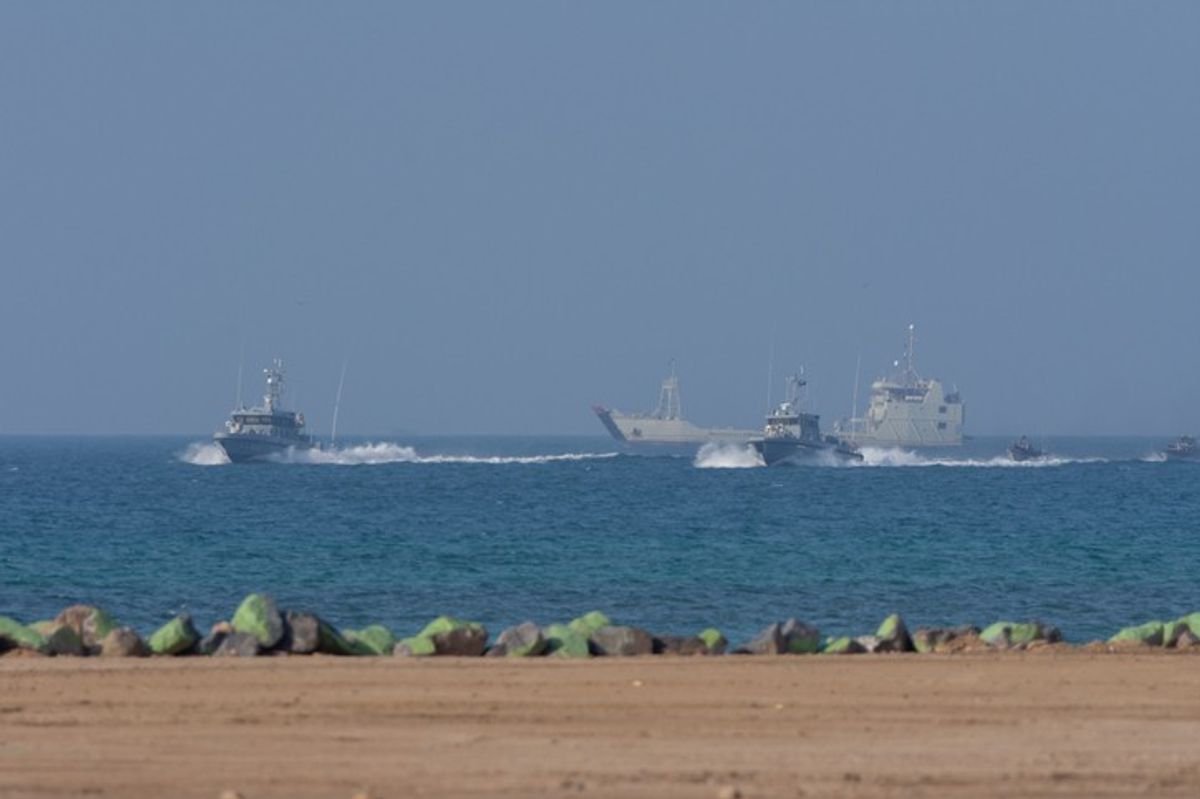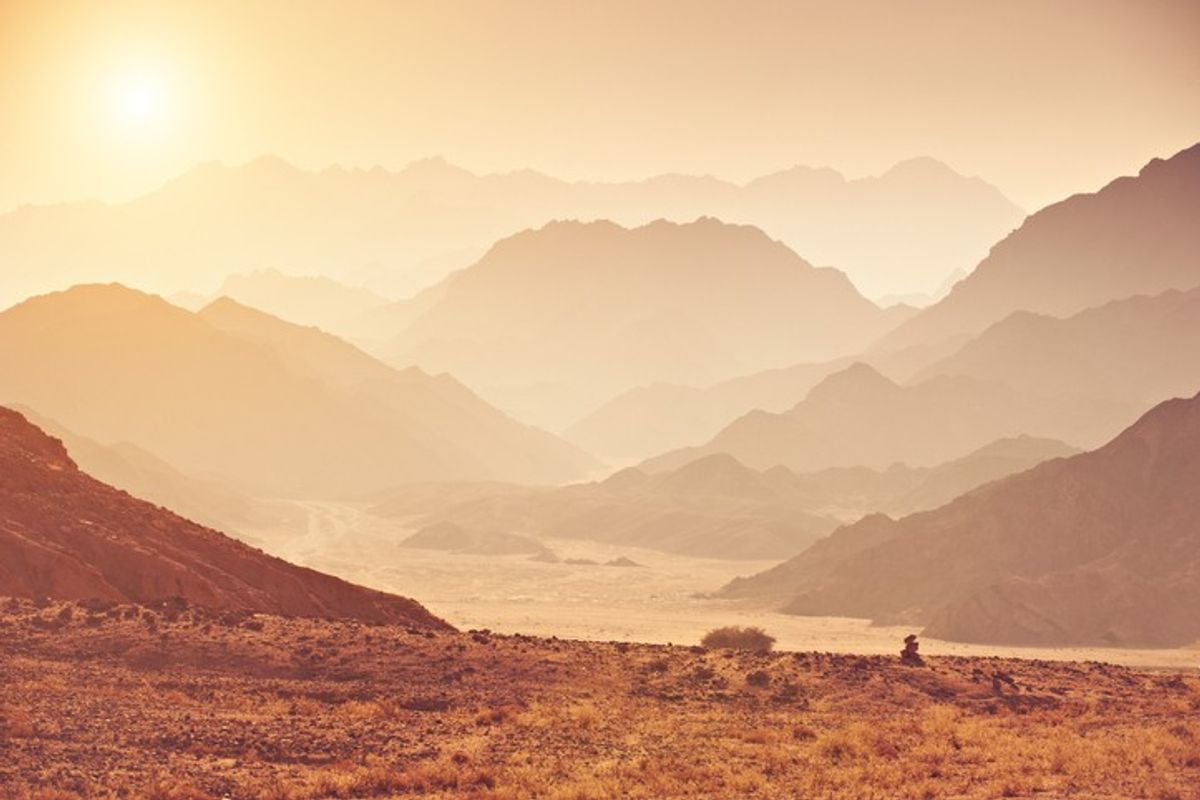Four years after the Arab Spring, the security environment across North Africa remains dire.
Here is an overview of developments in five key countries in the region.
Algeria
The Arab Spring did not signigicantly affect Algerian politics. Abdelaziz Bouteflika is still the country’s President, a post he has held since 1999. According to a May 2014 report issued by the Atlantic Council, the lack of domestic unrest in Algeria could be attributed to two factors: First, Algeria’s population remembers the country’s civil war during the 1990s and is “extremely cautious in pushing for changes that could lead to a repeat of that tragedy.” Second, as a major player in the oil and gas industry, the Algerian government has “sufficient financial resources at its disposal to buy peace.”
Despite political order, terrorism threatens Algeria’s security. The January 2013 terrorist attack at the Tigantourine gas facility in southwest Algeria, which resulted in the deaths of 37 foreigners, was carried out by the al-Mua’qi’oon Biddam, an al-Qaeda linked terrorist group headed by Mokhtar Belmokhtar. Al-Qaeda in the Islamic Maghreb (AQIM), the most prominent terrorist group operating in Algeria, is known for targeting foreigners and exchanging hostages for significant ransoms.
Egypt
Protests began in Cairo’s Tahrir Square in January of 2011, and Egyptian President Housni Mubarak was forced from power one month later. Egypt’s Supreme Council of the Armed Forces subsequently assumed political control until Mohammed Morsi, the leader of the Muslim Brotherhood, was elected President in June 2012. Soon after his election, Morsi attempted to consolidate power, triggering a July 2013 military coup headed by Abdul Fatah al-Sisi, Egypt’s current president.
Since Morsi’s deposal, Egypt has faced a spate of terrorist attacks. This February, ISIS linked militants killed 21 Egyptian Coptic Christians working in Libya, leading al-Sisi to order air strikes in response. In July, Egyptian soldiers stationed in the Sinai Peninsula came under attack by an ISIS affiliate, known as Sinai Province, resulting in the deaths of 17 military personnel. Sinai Province has also claimed responsibility for recent bombings that resulted in the death of Egypt’s chief prosecutor and damage to the Italian consulate in Cairo.
Libya
The North African country that has fallen into the greatest state of disarray since the Arab Spring is Libya. Unrest in Libya began in February 2011, with rebel forces eventually overthrowing dictator Muammar Gaddafi in August 2011. The National Transition Council subsequently governed the country for 10 months until power was handed over to the General National Congress (GNC) following Libya’s first free elections in July 2012. The GNC was given 18 months to draft a new Libyan Constitution. In August 2014, a new round of elections took place and the GNC was set to relinquish control in favor of the newly established Council of Deputies. However, liberal and secular parties emerged victorious over the Islamist parties that had headed the GNC. Upset with the results, the Islamist parties reestablished the GNC. Today, Libya is divided between the two competing governments, and peace talks have failed to yield any positive results.
The lack of a cohesive political establishment has thrown Libya into chaos. Terrorist groups affiliated with ISIS have gained footholds in cities such as Derna, located in Northeast Libya. Extremist groups have conducted several attacks since the Arab Spring, including the 2012 attack on the U.S. consulate in Benghazi. Recently, the country has been plagued by battles between Libyan forces loyal to the Council of Deputies, ISIS-linked militants, and the al-Qaeda affiliated Mujahideen Shura Council. Additionally, Libya has become the launching point for mass migration to Europe, a crisis that further encapsulates the country’s lawless state.
Morocco
The Kingdom of Morocco remained stable throughout the Arab Spring largely because the country’s monarch, King Mohammed VI, boasts an approval rating of above 90 percent. When small-scale protests broke out in 2011, the King ceded some of his powers and appointed Abdelilah Benkirane, the leader of the country’s main opposition party, as prime minister.
Currently, al-Qaeda in the Islamic Maghreb and ISIS-linked terrorist cells pose the most imminent threat to Moroccan security; terrorist groups may attempt to establish bases in the semi-autonomous Western Sahara to Morocco’s south. Moroccan security forces have taken steps to combat terrorism, recently arresting several extremist recruiters in a joint operation with Spain.
Tunisia
In December 2010, Mohamed Bouazizi, a Tunisian fruit vendor, set himself on fire – an event that ignited the Arab Spring and forced Tunisian dictator Zine el-Abidine Ben Ali from power after 23 years. Following Bin Ali’s ousting, political oversight passed to the Constituent Assembly of Tunisia, which was charged with governing the country and rewriting Tunisia’s constitution. The Assembly elected Moncef Marzouki to serve as Tunisia’s interim president, a position he held until October 2014 when Béji Caïd Essebsi of the Nidaa Tounes secularist party was elected president in Tunisia’s first free elections.
With a successful transition from dictatorship to democracy, Tunisia has often been hailed as the Arab Spring’s primary success story. Today, however, the country faces a grave extremist threat. At least 3,000 militants are believed to have traveled from Tunisia to join ISIS, establishing Tunisia as the largest supplier of ISIS’s foreign fighters. Two major terrorist attacks were conducted on Tunisian soil this year. A shooting at the Bardo National Museum left 21 dead, and another attack on a Tunisian beach in Sousse resulted in 38 deaths. These terrorist acts have weakened Tunisia’s tourism industry and have led the government to pass new anti-terrorism laws that permit the death penalty for convicted terrorists, authorize arrests of people who express support for terrorism, and allow administrative detention for 15 days.
Bennett Seftel is an analyst with The Cipher Brief.














